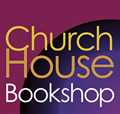Religion and Authority in Roman Carthage from Augustus to Constantine
This item is a print on demand title and will be dispatched in 1-3 weeks.
Hardback
£130.00
QTY
Publisher: Oxford University Press
ISBN: 9780198140832
Published: 23/02/1995
This book examines the organization of religion in the Roman empire from Augustus to Constantine. Although there have been illuminating particular studies of the relationship between religious activity and socio-political authority in the empire, there has been no large-scale attempt to assess it as a whole. Taking as his focus the situation in Carthage, the greatest city of the western provinces, J.B. Rives argues that the traditional religion, predicated on the structure of a city-state, could not serve to integrate individuals into an empire. In upholding traditional religion, the government abandoned the sort of political control of religious behaviour characteristic of the Roman Republic, and allowed poeple to determine their own religious identities. The importance of Christianity was thus suited to the needs of the increasingly homogeneous Roman empire.
"Rives's study has much to commend it to students of religion in the Roman empire....Rives should be applauded most of all for writing a book on religion in the Roman world that focuses on evidence from the western half of the empire."--Bryn Mawr Classical Review"Rives has produced a challenging and convincing interpretation of the intersection of religion and authority in the early empire that will lead many students and scholars to reconsider the way in which they view "official religion" in the Roman world"--Journal of Church and State"Rive's book represents a major advance in the study of ancient Carthage, the relationship between religious identity and political authority in the Roman empire, and the religious transformation of the Mediterranean world. It is the first successful study of how and why the official religion of a major city in the Roman empire changed over time. In explaining this change, Rives has recreated the religious tapestry of Carthage with unmatched sensitivity to language, subtlety, and depth. This study should serve as a model for understanding religious change in other cities and provinces of the Roman empire."--American Historical Review"This study of religious life in Carthage during its most cosmopolitan era is well documented with literary and archeological evidence...The author significantly increases our understanding of religion in the Roman empire with the monograph."--Church History






